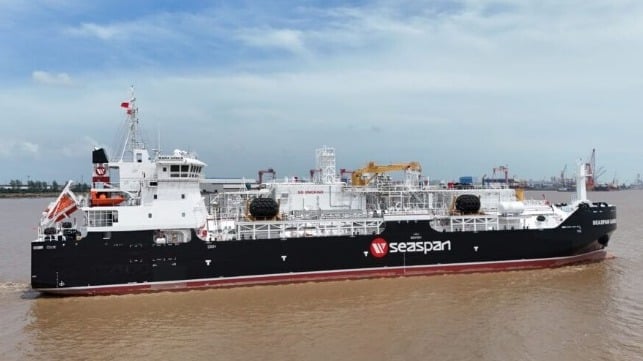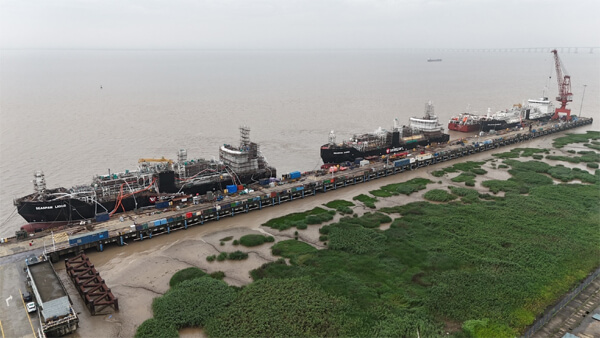Vancouver Accredits Seaspan Energy for First LNG Ship-to-Ship Bunkering

The Port of Vancouver and Seaspan Energy took a key step forward to launching the first ship-to-ship LNG bunkering operation for a wide range of vessels calling at the port. The company went through an extensive multi-year assessment process conducted by the Vancouver Fraser Port Authority in collaboration with other Canadian authorities to ensure the safety of the new operation.
Seaspan Energy is working toward launching its LNG bunkering operation along the West Coast of North America. Harly Penner, Senior Vice President of Seaspan Energy called the accreditation a “meaningful step,” towards the start-up of the Vancouver-based LNG bunkering hub.
The first two of three newly built 7600 cbm LNG bunkering vessels are due for delivery in the near future with a third scheduled for 2025. The LNG bunkering vessels are being built by CIMC Sinopacific Offshore & Engineering after Seaspan Energy worked closely with the Canadian-based team at VARD Marine to incorporate emerging technologies resulting in a decrease in emissions and underwater noise.
Each of the vessels will be approximately 113 meters (approximately 370 feet) in length with a design speed of 13 knots. Seaspan reports the design is focused on safe, efficient, and economical refueling of multiple ship types with an ability to transfer to and from a wide range of terminals. The vessels will be engaged in ship-to-ship LNG transfer along with coastal and short-sea shipping cargo operations.

Three vessels due for delivery in 2024 and 2025 will provide the new ship-to-ship bunkering operation (Seaspan Energy)
The first of the vessels, Seaspan Garibaldi was launched in January 2024. It was followed by the launching of Seaspan Lions in April and Seaspan Baker in July.
The Port of Vancouver highlights that it is a key step in its efforts to meet industry demands and proceed with sustainability programs. They expect to be able to provide bunkering operations to a wide range of vessels including Ro-Ro vehicle carriers, tankers, containerships, and cruise ships expanding the role of the port in the West Coast trade.
The safety assessment program incorporated international best practices, assessed operational procedures, and produced a risk assessment. Vancouver approved designated locations for LNG bunkering operations within the port area.
The port authority is also requiring Seaspan Energy to renew its license annually to ensure it continues to meet the highest LNG bunkering safety standards and procedures.
